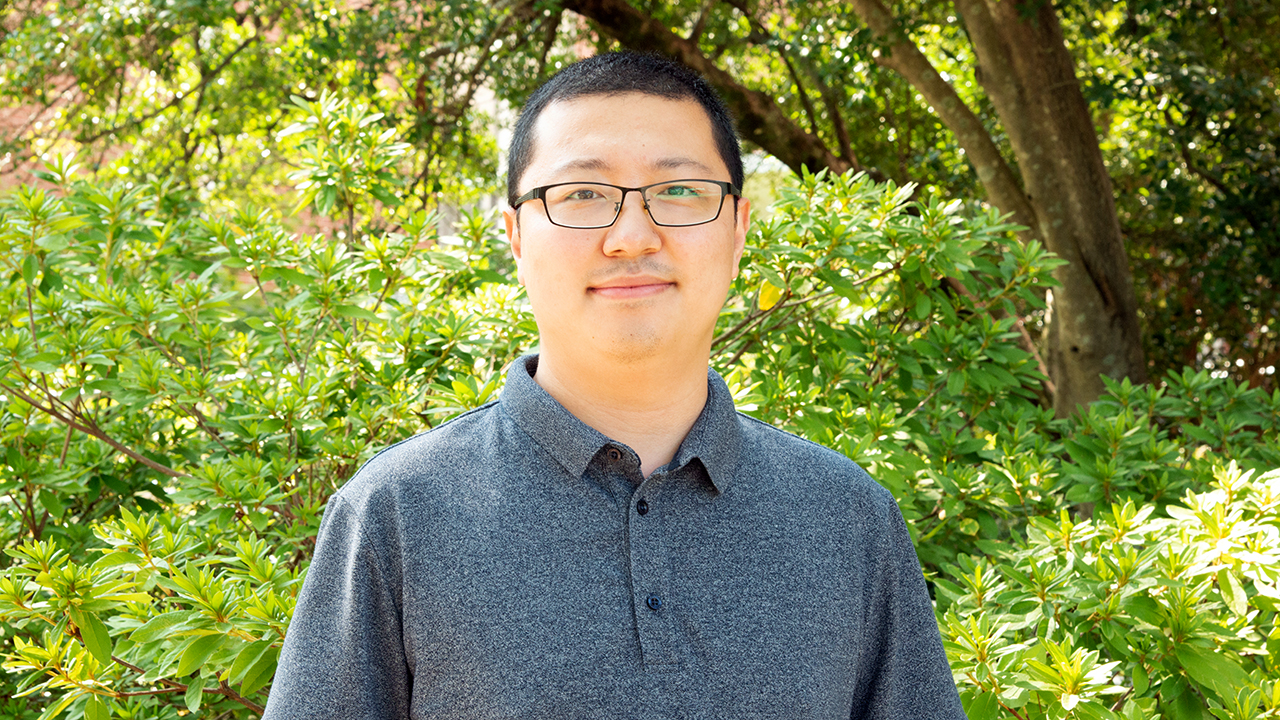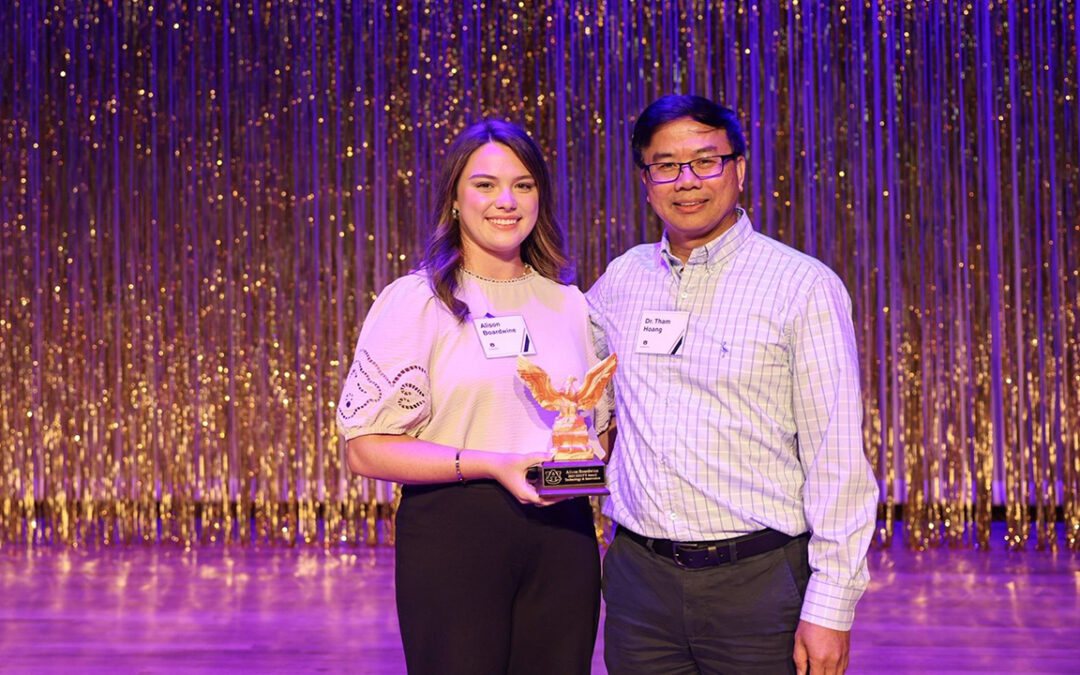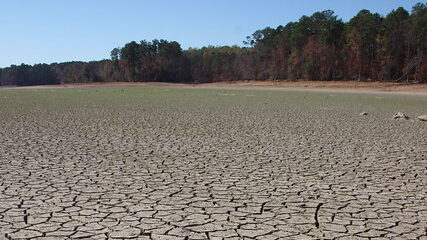Wenying Li, an assistant professor in the Auburn University College of Agriculture’s Department of Agricultural Economics & Rural Sociology, has received the 2021 American Journal of Agricultural Economics (AJAE) Outstanding Article Award for his work, “Intrahousehold Economics of Scale with Application to Food Assistance and Work Incentive Programs.”
“This award is quite possibly the most exclusive research recognition in agricultural economics, and only a select few in our profession will ever win,” said Joshua Duke, department head and professor for AU’s Department of Agricultural Economics & Rural Sociology.
“Each year, only one or several economists–depending on how many authors are on the paper—are selected,” Duke said. “For comparison, the association awards approximately five fellows awards every year.
“Furthermore, Dr. Li and Dr. Jeffrey Dorfman, co-author of the paper and University of Georgia professor, were competing against all the elite economists who publish in AJAE, and this group of authors draws from a larger and more international pool of researchers than the association membership. That Dr. Li won this award during his first year as an assistant professor is especially notable.”
The American Journal of Agricultural Economics is highly selective in accepting manuscripts for publication, added Paul Patterson, dean of the College of Agriculture and director of the Alabama Agricultural Experiment Station.
“To be published in this journal is a significant accomplishment,” Patterson said. “To then have your article selected as the best for the year is an even more notable career accomplishment. It indicates that the article is valued for its contribution to the discipline, along with being extremely well written and innovative in its approach and findings. We are very proud of Dr. Li for this significant accomplishment.”
Li said the award is a career milestone for him personally and professionally. “My department head and colleagues have given me a lot of support and trust since I joined Auburn University, and the biggest credit goes to the Department of Agricultural Economics & Rural Sociology family for making me a better researcher.”
Comparing the income levels of households with different household compositions and sizes has been a long-standing focus of welfare and policy analysis, Li said.
According to the U.S. Census Bureau, in 2020, single people under the age of 65 without children are considered poor if their annual income is less than $12,760. Meanwhile, the threshold was raised to $17,240 for a childless two-person family with two adults under 65, which is 1.35 times that for singles without children, suggesting a considerable joint consumption (sharing) of household goods.
“Such a calculation is critical to many social policy settings,” Li said. “Nearly all U.S. social safety net programs, including all the major federal food assistance programs, have eligibility standards tied to some multiple of the household size-adjusted poverty line. The genesis of the study included the question of where the number 1.35 came from and whether it is reasonable.
By using a structural econometric model and household scanner data, Li’s study found that women, on average, consume 48% of total household expenditures, and a woman (man) living alone would need approximately 65% (63%) of the two-person household’s income to reach the same living standard as attained as a member of a two-person household.
“Our results suggest that the poverty line for two-person childless households should be increased to $19,938, 15.6% higher than the $17,240 provided by the U.S. Census Bureau,” Li said.
“Because most social benefits are indexed to the poverty line in some manner, the results suggest that the means-tested eligibility standards for most of the American social safety net may be underestimated and should be raised, thereby resulting in a greater population of eligible households for many social welfare programs.”
Li said there was one finding from the research that particularly surprised him.
“On March 31, 2020, a bipartisan $2 trillion economic relief plan, the CARESAct, was passed to offer financial assistance to tens of millions of American households during the coronavirus pandemic,” he said. “One component of this plan is direct cash payments to households. All qualifying single adults are eligible for a one-time payment of $1,200, and qualifying couples with no children can receive a total payment of $2,400.
“Our estimation results suggest if shared consumption is considered, the amount for married couples with no children should be reduced to $1,875, given the payment to singles. Generally speaking, either married couples are overpaid, or individuals are underpaid.”
Li said the project on which the award-winning paper is based is a pilot study of a larger research plan.
“We have proven that governments should have a well-thought-out research agenda on modern household economies-of-scale in order to obtain reliable estimates for use in determining eligibility for food assistance and other social safety net programs,” he said. “To make our research more impactful, the cost of children should be conceptualized, defined and estimated. This is hard both theoretically and empirically. We are actively seeking government collaborations at this moment to advance these studies for the benefit of the public.”





